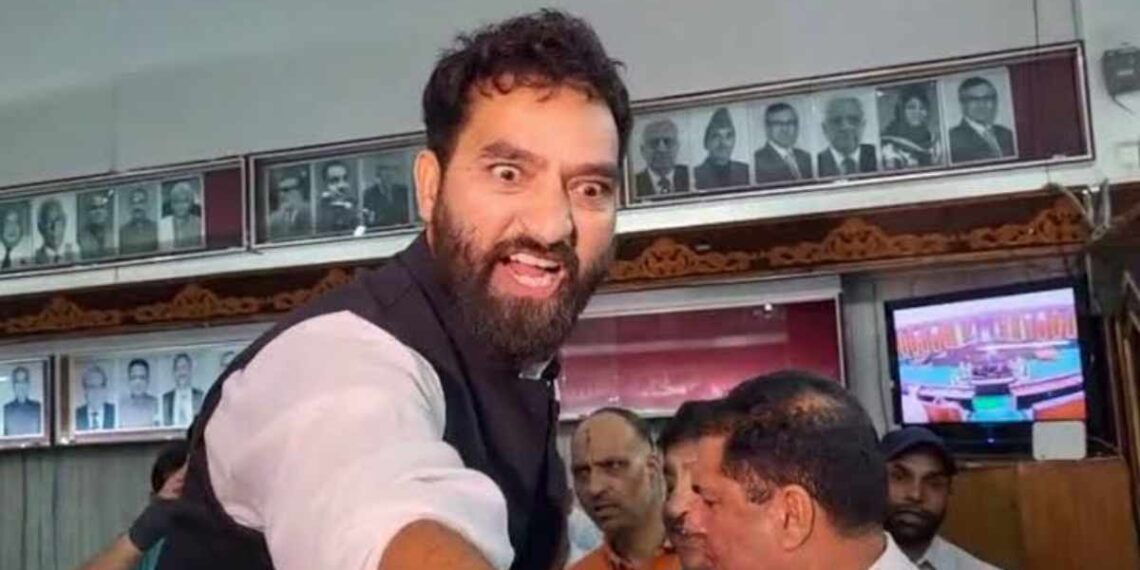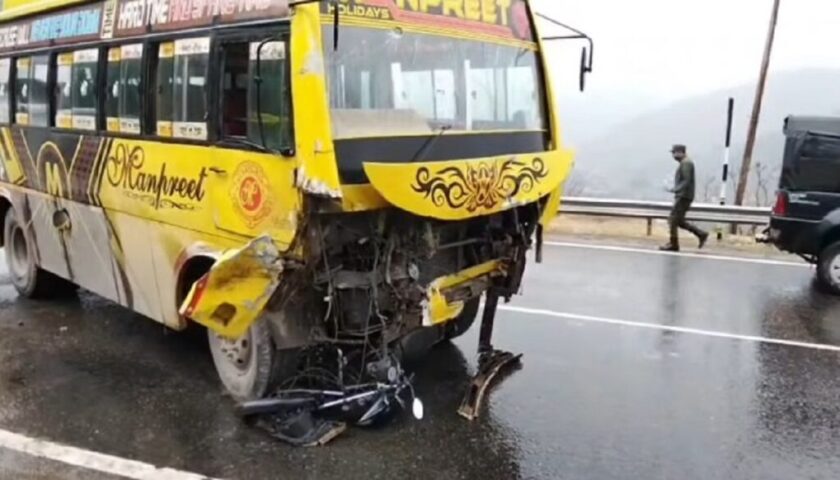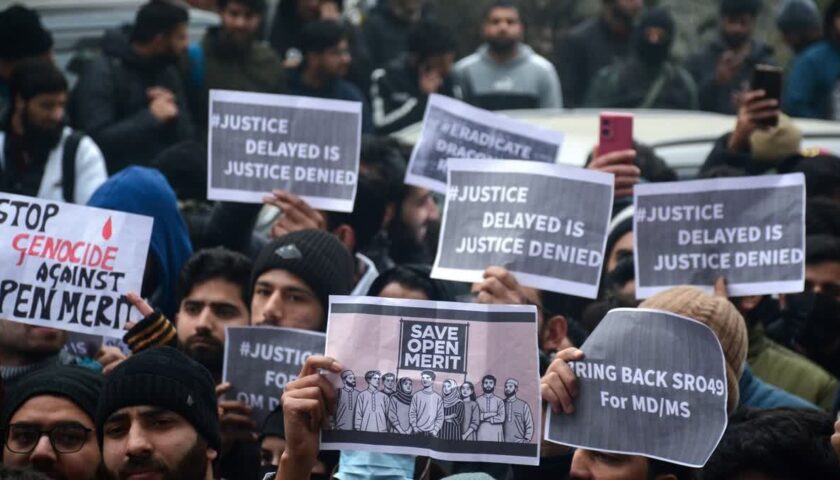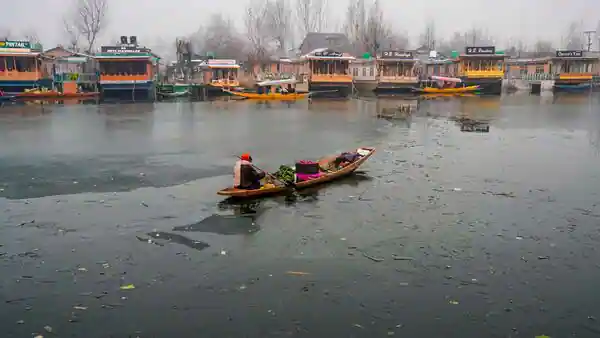Detained Democracy: MLA Mehraj Malik Booked Under PSA in Jammu & Kashmir
By: Javid Amin | 08 September 2025
A First in Legislative History
On September 7, 2025, Jammu & Kashmir witnessed a political moment that will likely be etched in its legislative history for years to come. Mehraj Malik, the first-ever elected MLA from the Aam Aadmi Party (AAP) in the region, was detained under the Public Safety Act (PSA)—a law often criticized for its sweeping powers and lack of judicial oversight.
This marks the first time a sitting legislator in J&K has been booked under PSA, triggering a wave of political backlash, legal scrutiny, and public debate.
What Is the Public Safety Act (PSA)?
The Jammu & Kashmir Public Safety Act, 1978, allows authorities to detain individuals without trial for up to two years if they are deemed a threat to public order or state security. Originally intended to curb militancy and organized crime, PSA has often been criticized for:
- Vague definitions of “public threat”
- Lack of judicial review
- Extended detentions without formal charges
- Use against political activists and dissenters
Human rights organizations have repeatedly called for its repeal or reform, citing abuse of power and erosion of civil liberties.
The Charges Against Mehraj Malik
According to the District Magistrate’s PSA dossier, Malik has been booked based on:
- 18 FIRs registered across Doda and adjoining districts
- Allegations of misbehaving with government officials
- Provoking youth against the administration
- Disrupting flood relief efforts
- Launching disparaging campaigns on social media
- Using abusive language against doctors and officers
He was detained while preparing to visit flood-hit areas and later shifted to Bhaderwah district jail under PSA orders issued by Deputy Commissioner Harvinder Singh.
Political Fallout: A Storm Across Party Lines
The detention has triggered sharp reactions from across the political spectrum:
Aam Aadmi Party (AAP)
- Sanjay Singh, AAP MP, called the arrest “dictatorial,” defending Malik’s activism around healthcare and flood relief.
- AAP leaders in Delhi and Punjab have demanded immediate revocation of PSA and judicial inquiry into the charges.
People’s Democratic Party (PDP)
- PDP termed the move a “democratic betrayal”, accusing the administration of weaponizing draconian laws to silence elected voices.
People’s Conference
- Sajad Lone described the detention as a “soulless democracy”, questioning the point of elections if elected representatives are denied the right to dissent.
Civil Society & Legal Experts
- Legal scholars argue that PSA should never be used against elected officials, as it undermines the constitutional mandate of representation.
- Activists warn of a dangerous precedent, where dissent is criminalized and electoral legitimacy is ignored.
The Bigger Questions: Democracy or Deterrence?
This case raises urgent and uncomfortable questions:
- Is dissent being equated with disruption?
- Are elected voices being silenced through administrative overreach?
- What precedent does this set for future legislators in J&K?
- Is the PSA being used as a tool of deterrence, rather than a safeguard?
In a region already grappling with trust deficits, political alienation, and civil unrest, such actions risk deepening the divide between citizens and institutions.
The Flood Relief Context: Catalyst or Excuse?
Malik’s detention came amid ongoing flood relief efforts in Doda, where he had been vocal about:
- Inadequate medical infrastructure
- Delayed response from administration
- Neglect of remote villages
His social media posts criticized officials for failing to provide timely aid, and he reportedly confronted local officers during relief distribution.
Supporters argue that his actions were motivated by public service, while detractors claim he incited unrest and disrespected protocol.
Public Sentiment: Divided but Engaged
Among the public, reactions are mixed:
- Youth activists see Malik as a symbol of grassroots accountability
- Traditional voters express concern over political instability
- Business owners worry about the impact on local governance and development
Social media is flooded with hashtags like #JusticeForMehraj and #DemocracyUnderDetention, reflecting a growing awareness and engagement around civil liberties.
Editorial Analysis: A Dangerous Precedent
From an editorial standpoint, this case is not just about one MLA—it’s about the health of democracy in Jammu & Kashmir.
If elected representatives can be detained without trial, what message does that send to:
- Aspiring leaders?
- Voters who placed their trust in the ballot?
- Institutions meant to uphold constitutional values?
This isn’t just a legal issue—it’s a moral and democratic crisis.
Timeline of Events
| Date | Event |
|---|---|
| Sept 6, 2025 | Malik prepares to visit flood-hit areas |
| Sept 7, 2025 | Detained under PSA at Dak Bungalow |
| Sept 8, 2025 | Shifted to Bhaderwah jail |
| Sept 9, 2025 | Political parties issue statements |
| Sept 10, 2025 | Civil society calls for review |
What Happens Next?
Legal experts suggest Malik’s team may:
- File a writ petition challenging PSA detention
- Seek intervention from the High Court
- Demand public release of FIRs and evidence
Meanwhile, political parties may:
- Launch public awareness campaigns
- Organize solidarity protests
- Push for PSA reform legislation
Conclusion: The Cost of Silence
Mehraj Malik’s detention under PSA is more than a headline—it’s a litmus test for democracy in Jammu & Kashmir.
It forces us to ask:
- Can dissent coexist with governance?
- Can democracy survive without debate?
- Can institutions protect rights without suppressing voices?
In the end, the question isn’t just about Mehraj Malik. It’s about every citizen who believes in the power of the vote, the voice, and the Constitution.




